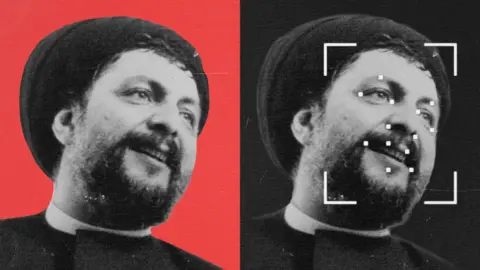Greece has announced a suspension of asylum applications for migrants from North Africa for a period of three months, responding to a significant influx of arrivals by sea. Prime Minister Kyriakos Mitsotakis stated that individuals arriving by boat from this region would be arrested and held, emphasizing that the government aims to send a strong warning to human traffickers and potential migrants that their journey may prove futile. "This emergency situation requires emergency response measures,” Mitsotakis declared.
The Prime Minister's measures echo the legal strategies employed in 2020 when Greece effectively halted thousands from crossing its land border with Turkey. Draft legislation implementing these changes is anticipated to be presented to parliament this Thursday. Migration Minister Thanos Plevris reinforced this stance on social media, stating, “Clear message: stay where you are, we do not accept you."
The suspension comes as Greece faces an unprecedented surge in migrant arrivals, particularly on the islands of Crete and Gavdos. Recent reports indicate that over 2,000 migrants reached Crete in just a matter of days, with another 520 rescued off its coast early Wednesday. The escalating numbers reflect a staggering 350% increase since last year, according to Vasilis Katsikandarakis, president of the Western Crete Coast Guard Personnel Association. "Immigration is suffocating us... Our personnel are literally on their knees," he remarked.
Government spokesman Pavlos Marinakis acknowledged that the flow of migrants is exceptionally high and ongoing, straining local resources. Reports indicate that authorities in Crete are grappling with logistical difficulties as the influx surpasses the capabilities of existing accommodation. Due to the overwhelming situation, several hundred migrants, including families with toddlers, are currently occupying an uncomfortably hot market hall.
Compounding these issues is the slow process of redistributing migrants across the country, hampered by limited transport availability during the busy tourist season. Meanwhile, a high-level meeting of Greek, Italian, and Maltese ministers and the EU's migration commissioner aimed at addressing the situation in Libya was cut short when the country's authorities refused them entry. Mitsotakis expressed readiness for the Greek army to collaborate with Libyan officials to deter boat departures.
However, NGOs have consistently condemned European governments' attempts to negotiate with Libyan authorities, highlighting the harsh treatment faced by those intercepted and returned by the Libyan coastguard. Amnesty International criticized such efforts as a blatant disregard for the dignity and lives of migrants and refugees, emphasizing the urgent need for humane treatment and solutions.
The Prime Minister's measures echo the legal strategies employed in 2020 when Greece effectively halted thousands from crossing its land border with Turkey. Draft legislation implementing these changes is anticipated to be presented to parliament this Thursday. Migration Minister Thanos Plevris reinforced this stance on social media, stating, “Clear message: stay where you are, we do not accept you."
The suspension comes as Greece faces an unprecedented surge in migrant arrivals, particularly on the islands of Crete and Gavdos. Recent reports indicate that over 2,000 migrants reached Crete in just a matter of days, with another 520 rescued off its coast early Wednesday. The escalating numbers reflect a staggering 350% increase since last year, according to Vasilis Katsikandarakis, president of the Western Crete Coast Guard Personnel Association. "Immigration is suffocating us... Our personnel are literally on their knees," he remarked.
Government spokesman Pavlos Marinakis acknowledged that the flow of migrants is exceptionally high and ongoing, straining local resources. Reports indicate that authorities in Crete are grappling with logistical difficulties as the influx surpasses the capabilities of existing accommodation. Due to the overwhelming situation, several hundred migrants, including families with toddlers, are currently occupying an uncomfortably hot market hall.
Compounding these issues is the slow process of redistributing migrants across the country, hampered by limited transport availability during the busy tourist season. Meanwhile, a high-level meeting of Greek, Italian, and Maltese ministers and the EU's migration commissioner aimed at addressing the situation in Libya was cut short when the country's authorities refused them entry. Mitsotakis expressed readiness for the Greek army to collaborate with Libyan officials to deter boat departures.
However, NGOs have consistently condemned European governments' attempts to negotiate with Libyan authorities, highlighting the harsh treatment faced by those intercepted and returned by the Libyan coastguard. Amnesty International criticized such efforts as a blatant disregard for the dignity and lives of migrants and refugees, emphasizing the urgent need for humane treatment and solutions.



















